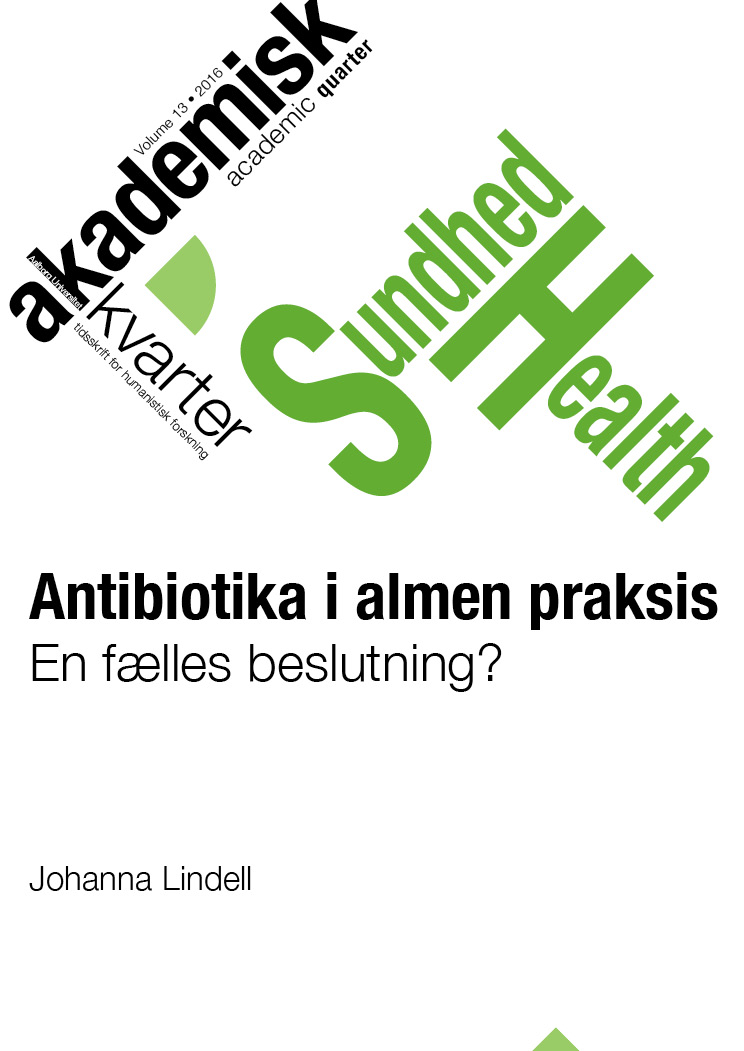Abstract | Abstract
Patient involvement and shared decision making (SDM) in treatment is increasingly on the health care agenda both nationally and internationally. Studies have shown that the benefits of actively including patients in decisions about their health care improves their health, satisfaction and agency, as well as being more cost-efficient (SUM 2014,2). SDM has been shown helpful in the primary sector in lowering the use of antibiotics (Legare et al 2012), where growing resistance due to antibiotic overuse is a public health problem, with primary care responsible for 90% of the prescriptions in Denmark. Using Conversation Analysis on a dataset of 13 cases this study investigates how treatment decisions for antibiotics are made in primary care and whether the interaction follows the ideal of SDM. It finds that most treatment recommendations are presented as decisions already made, not encouraging the patient to participate in the decision making.
